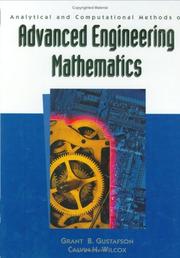| Listing 1 - 7 of 7 |
Sort by
|

ISBN: 9780829811001 0829811001 Year: 1998 Publisher: Cleveland: Pilgrim Press,
Abstract | Keywords | Export | Availability | Bookmark
 Loading...
Loading...Choose an application
- Reference Manager
- EndNote
- RefWorks (Direct export to RefWorks)
Nature --- Human ecology --- Environmental ethics. --- Christian ethics.
Book
Year: 1998 Publisher: Cambridge, Mass. National Bureau of Economic Research
Abstract | Keywords | Export | Availability | Bookmark
 Loading...
Loading...Choose an application
- Reference Manager
- EndNote
- RefWorks (Direct export to RefWorks)
Book
ISBN: 8021017678 Year: 1998 Publisher: Brne : Masarykova Univerzita = Masaryk University Brno,
Abstract | Keywords | Export | Availability | Bookmark
 Loading...
Loading...Choose an application
- Reference Manager
- EndNote
- RefWorks (Direct export to RefWorks)

ISBN: 0387982655 1461268478 1461206332 9780387982656 Year: 1998 Volume: 28 Publisher: New York : Springer,
Abstract | Keywords | Export | Availability | Bookmark
 Loading...
Loading...Choose an application
- Reference Manager
- EndNote
- RefWorks (Direct export to RefWorks)
(NOTES)This text focuses on the topics which are an essential part of the engineering mathematics course:ordinary differential equations, vector calculus, linear algebra and partial differential equations. Advantages over competing texts: 1. The text has a large number of examples and problems - a typical section having 25 quality problems directly related to the text. 2. The authors use a practical engineering approach based upon solving equations. All ideas and definitions are introduced from this basic viewpoint, which allows engineers in their second year to understand concepts that would otherwise be impossibly abstract. Partial differential equations are introduced in an engineering and science context based upon modelling of physical problems. A strength of the manuscript is the vast number of applications to real-world problems, each treated completely and in sufficient depth to be self-contained. 3. Numerical analysis is introduced in the manuscript at a completely elementary calculus level. In fact, numerics are advertised as just an extension of the calculus and used generally as enrichment, to help communicate the role of mathematics in engineering applications. 4.The authors have used and updated the book as a course text over a 10 year period. 5. Modern outline, as contrasted to the outdated outline by Kreysig and Wylie. 6. This is now a one year course. The text is shorter and more readable than the current reference type manuals published all at around 1300-1500 pages.
Engineering mathematics. --- Mathématiques de l'ingénieur --- Mathématiques de l'ingénieur --- Engineering mathematics --- Applied mathematics. --- Mathematical analysis. --- Analysis (Mathematics). --- Computer mathematics. --- Mathematical and Computational Engineering. --- Applications of Mathematics. --- Analysis. --- Computational Mathematics and Numerical Analysis. --- Computer mathematics --- Electronic data processing --- Mathematics --- 517.1 Mathematical analysis --- Mathematical analysis --- Engineering --- Engineering analysis
Book
Abstract | Keywords | Export | Availability | Bookmark
 Loading...
Loading...Choose an application
- Reference Manager
- EndNote
- RefWorks (Direct export to RefWorks)
Digital
Year: 1998 Publisher: Cambridge, Mass. National Bureau of Economic Research
Abstract | Keywords | Export | Availability | Bookmark
 Loading...
Loading...Choose an application
- Reference Manager
- EndNote
- RefWorks (Direct export to RefWorks)
Labour market --- Social security law --- United States of America
Book
Year: 1998 Publisher: Cambridge, Mass. National Bureau of Economic Research
Abstract | Keywords | Export | Availability | Bookmark
 Loading...
Loading...Choose an application
- Reference Manager
- EndNote
- RefWorks (Direct export to RefWorks)
The declining economic position over the past two decades of those workers with less skill increases the importance of the unemployment insurance (UI) system in providing a safety net during periods of unemployment. Recent welfare reform legislation, designed to encourage labor market entry of typically very low-skilled workers who are likely to have unstable work patterns at best, potentially makes the UI system an even more critical component of the safety net. This paper seeks to determine how less-skilled workers typically fare in the UI system, estimating their likelihood of becoming eligible for and collecting benefits. We find that many workers who separate from a job, and particularly those with lower levels of skill, will not be compensated by the UI system. Although minimum earnings requirements keep some less-skilled job losers from receiving UI, it is the provision mandating that separations be involuntary' that prevents most workers from gaining UI eligibility. These findings suggest that the UI system will provide little additional support to the safety net following welfare reform.
| Listing 1 - 7 of 7 |
Sort by
|

 Search
Search Feedback
Feedback About UniCat
About UniCat  Help
Help News
News